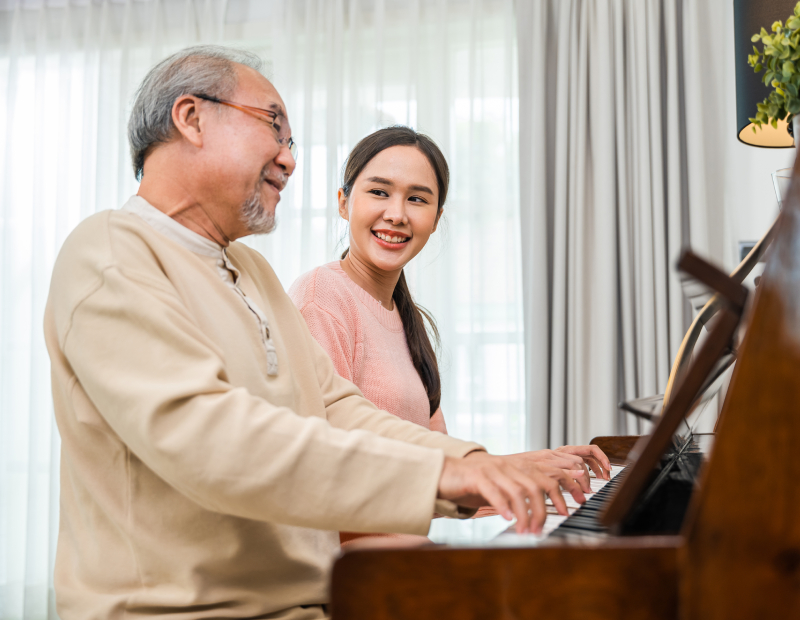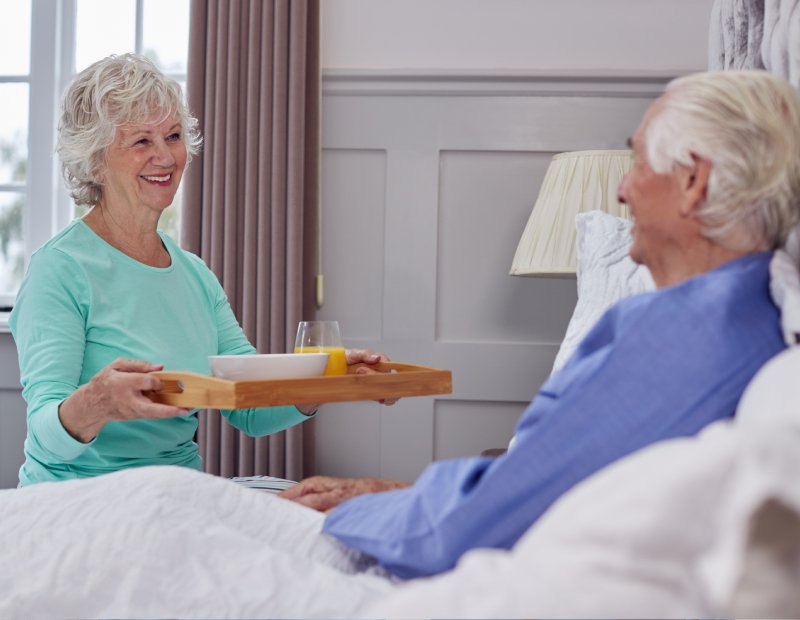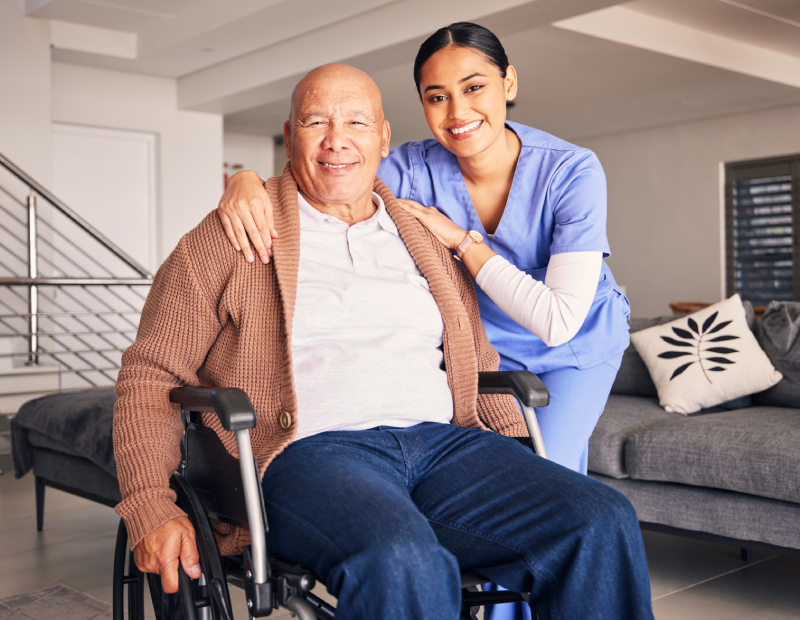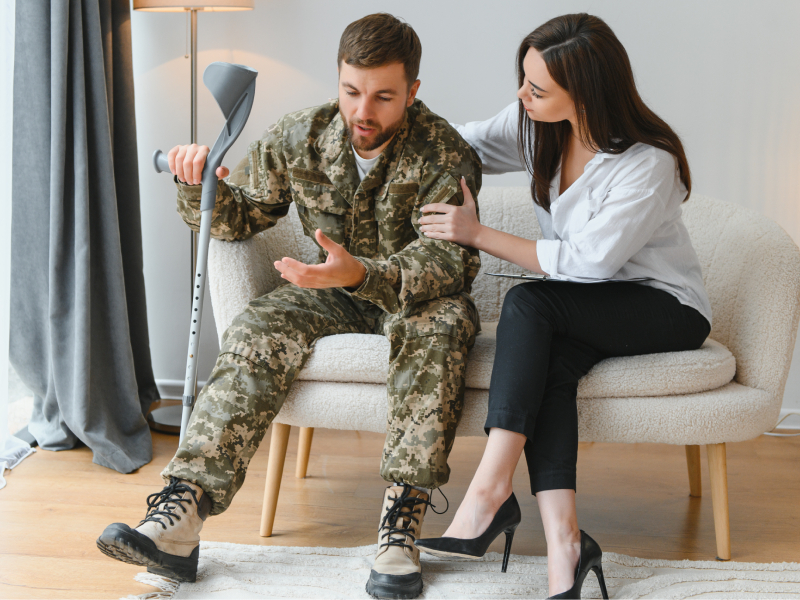Understanding Daily Living Activities
In senior care, understanding daily living activities is essential. These activities are categorized into two groups: Activities of Daily Living (ADLs) and Instrumental Activities of Daily Living (IADLs).
Activities of Daily Living (ADLs)
Activities of Daily Living (ADLs) refer to basic self-care tasks that are fundamental for maintaining independence and overall well-being. According to Senior1Care, ADLs include:
- Bathing: Washing oneself and maintaining personal hygiene.
- Dressing: Putting on and taking off clothes.
- Toileting: Using the toilet and managing bladder and bowel functions.
- Transferring: Moving from one position to another, like getting in and out of bed or a chair.
- Continence: Managing bladder and bowel control.
- Feeding: Being able to eat independently.
The Katz ADL scale is commonly used to assess an individual’s ability to perform these tasks. A higher score on this scale indicates greater independence (Cleveland Clinic).
Instrumental Activities of Daily Living (IADLs)
Instrumental Activities of Daily Living (IADLs) involve more complex tasks that are essential for living independently and require higher-order cognitive functions. These activities are crucial for seniors as they encompass a broad range of daily tasks that support independent living. According to Senior1Care, IADLs typically include:
- Managing Finances: Handling money, paying bills, and budgeting.
- Medications: Taking medications as prescribed and managing refills.
- Meal Preparation: Planning and preparing meals.
- Shopping: Shopping for groceries and other necessities.
- Housework: Performing housekeeping tasks like cleaning and laundry.
- Transportation: Using public or private transport for errands or appointments.
- Communication: Using the telephone or other communication devices.
Comparison Table of ADLs and IADLs
| Task Category | Examples |
|---|---|
| ADLs | Bathing, Dressing, Toileting, Transferring, Continence, Feeding |
| IADLs | Managing Finances, Medications, Meal Preparation, Shopping, Housework, Transportation, Communication |
Understanding the difference between ADLs and IADLs is crucial in assessing the level of support needed for seniors. For a more detailed comparison, refer to our article on adls vs. iadls: understanding the difference in senior care.
Medicare and Medicaid may offer various benefits for seniors who are unable to perform certain ADLs independently. For veterans, specific in-home care benefits are available through the Veterans Aid & Attendance Program. Understanding and evaluating these daily living activities can significantly impact the quality of care provided to our loved ones. For further insights, consult our comprehensive guide to non-medical home care in Sacramento.
For more information on how activities of daily living (ADLs) and instrumental activities of daily living (IADLs) can improve the quality of life for seniors, visit our related articles on how activities of daily living (ADLs) keep seniors independent and instrumental activities of daily living (IADLs): improving quality of life for seniors.
Importance of Independent Living Skills
As we age, maintaining independence through mastering instrumental activities of daily living (IADLs) is essential. In this section, we will explore the impacts of IADLs on quality of life and the benefits of autonomy for seniors, particularly our veterans.
Impact on Quality of Life
Instrumental activities of daily living (IADLs) are more complex tasks that require higher cognitive functioning and organization skills than basic activities of daily living (ADLs). IADLs include managing finances, handling transportation, meal preparation, shopping, and housecleaning. While these activities do not need to be performed every day, they significantly impact a person’s quality of life and enable them to lead a fulfilling and purposeful lifestyle.
Independence in performing IADLs allows seniors, including veterans, to engage in social activities, interact with others, and maintain relationships. This increased social engagement helps reduce isolation and improves overall well-being. Engaging in these activities fosters a sense of accomplishment and purpose, contributing positively to mental and emotional health.
| IADLs | Impact on Quality of Life |
|---|---|
| Managing Finances | Ensures financial independence, reduces stress |
| Handling Transportation | Enables social interaction and access to essential services |
| Meal Preparation | Promotes healthier eating habits and well-being |
| Shopping | Encourages physical activity and social engagement |
| Housecleaning | Maintains a safe and comfortable living environment |
For more on how IADLs improve the quality of life for seniors, visit our article on instrumental activities of daily living (iadls): improving quality of life for seniors.
Benefits of Autonomy
Autonomy plays a crucial role in the lives of seniors, enhancing their overall quality of life. Being able to perform IADLs independently offers numerous benefits, both tangible and intangible.
- Physical Health: Performing IADLs involves movement and coordination, which helps maintain physical health and mobility.
- Mental Health: Independence fosters a sense of achievement and boosts self-confidence.
- Social Engagement: Autonomy allows individuals to maintain social connections, reducing feelings of loneliness.
- Safety and Security: Managing one’s own household tasks ensures that the living environment remains safe and hazard-free.
- Sense of Purpose: Engaging in everyday tasks provides seniors with a sense of purpose and belonging.
Adaptive equipment and technology can assist seniors in performing IADLs. These range from low-tech tools such as magnifying glasses to high-tech solutions like power wheelchairs (Verywell Health). Ensuring seniors have access to these tools is vital for maintaining their autonomy and enhancing their quality of life.
To read more about how Bravo Personal Care ensures quality care for seniors, visit how Bravo Personal Care Services ensures quality care for seniors.
By focusing on the importance of independent living skills, particularly IADLs, we can support our veterans and seniors in leading empowered and fulfilling lives. Understanding and facilitating these skills through proper care, assistive technology, and supportive services plays a crucial role in enhancing the overall well-being of seniors. For additional information on adapting home care services to fit these needs, see our comprehensive guide to non-medical home care in Sacramento.
Assessing ADLs and IADLs
Assessing Activities of Daily Living (ADLs) and Instrumental Activities of Daily Living (IADLs) is crucial in ensuring that our aging population, particularly veterans, can maintain their independence and quality of life. Here, we discuss evaluating functional abilities and the tools used for these assessments.
Evaluating Functional Abilities
Evaluating a senior’s ability to perform instrumental activities of daily living (IADLs) and their role in senior care involves examining tasks that are essential for everyday living but not necessarily basic self-care. Doctors often assess a person’s ability to carry out these tasks during routine health checkups (Healthwise).
ADLs encompass basic self-care tasks such as bathing, dressing, and eating. In contrast, IADLs include more complex activities like managing finances, handling transportation, shopping for groceries, and medication management. In inpatient rehabilitation settings, teams consisting of occupational, physical, and speech therapists work together to help patients achieve their ADL and IADL goals (Encompass Health).
According to a 2018 study from the CDC, roughly 7% of all Americans aged 65+ require some assistance to perform ADLs. Nurses play a crucial role in identifying declines in functionality during hospitalization, routinely screening for ADL impairments that may arise from various conditions (NCBI Bookshelf).
Tools for Assessment
Several tools are available to assess the ability to perform ADLs and IADLs, helping healthcare providers determine the level of assistance required. One widely used tool is the Lawton Instrumental Activities of Daily Living (IADL) Scale, which evaluates independent living skills across eight domains: food preparation, housekeeping, laundering, medication management, telephone use, shopping, and transportation (NCBI).
| Domain | Low Function (0) | High Function (1-8) |
|---|---|---|
| Food Preparation | Dependent | Independent |
| Housekeeping | Dependent | Independent |
| Laundering | Dependent | Independent |
| Medication Management | Dependent | Independent |
| Telephone Use | Dependent | Independent |
| Shopping | Dependent | Independent |
| Transportation | Dependent | Independent |
| Managing Finances | Dependent | Independent |
The results from these assessments not only highlight areas where a senior may need support but also help in developing a personalized care plan. This can involve a combination of adaptive equipment, assistive technology, and tailored non-medical in-home care services, such as those provided by Bravo Personal Care in Gold River, CA. Our comprehensive care services are designed to support veterans in their homes by offering assistance with both ADLs and IADLs, ensuring their well-being and independence.
For more information on how we can help assess and assist with daily living activities, please visit our comprehensive guide to non-medical home care in Sacramento. Additionally, explore how Bravo Personal Care Services ensures quality care for seniors and understand the benefits of in-home senior care in Sacramento for more details on our services.
Medicare and Medicaid Coverage
Understanding the financial support options available through Medicare and Medicaid is crucial for optimizing senior care. These programs can significantly reduce the cost burden of in-home care, particularly for veterans and those requiring assistance with instrumental activities of daily living (IADLs).
Financial Support Options
Medicare and Medicaid offer various financial support options that can help cover the costs of non-medical in-home care, including durable medical equipment and certain types of medical services. According to Senior1Care, approximately 7% of all Americans aged 65+ require assistance with activities of daily living (ADLs) and IADLs.
Medicare Support:
- Part A: Hospital Insurance – Covers inpatient hospital stays, hospice, and some home health care.
- Part B: Medical Insurance – Covers outpatient care, durable medical equipment, and some home health care services (Verywell Health).
- Part D: Prescription Drug Coverage – Helps cover the cost of medications.
Medicaid Support:
- Medicaid may provide financial assistance for in-home care services based on the patient’s ADL score. This means the level of care required is assessed to determine eligibility and coverage. Lower socioeconomic groups, who often face challenges accessing quality care, can benefit significantly from Medicaid (NCBI Bookshelf).
| Program | Coverage | Eligibility |
|---|---|---|
| Medicare Part A | Inpatient care, hospice, some home health care | Seniors 65+ |
| Medicare Part B | Outpatient care, durable medical equipment, some home health care | Seniors 65+ |
| Medicaid | In-home care services, based on ADL/IADL assessments | Low-income seniors |
Long-Term Care Insurance
Long-term care insurance is designed to cover the costs of extended in-home or facility-based care that seniors often require as they age. This type of insurance can be particularly beneficial for veterans and those needing help with instrumental activities of daily living (IADLs) and their role in senior care.
Key Benefits of Long-Term Care Insurance:
- Customized Coverage – Policies can be tailored to include specific types of care, such as in-home personal care, adult day care centers, and assisted living facilities.
- Financial Security – Provides a financial safety net, reducing the need to deplete personal savings or rely solely on government programs.
- Flexibility – Allows for choice in care options, offering more control over where and how care is received.
Purchasing long-term care insurance at an earlier age can result in lower premiums and more comprehensive coverage. It’s essential to explore the various policy options and understand what is covered under each plan. To better understand how these financial options can impact your senior care choices, visit our site for more on understanding the cost of non-medical home care in Sacramento.
By navigating the array of Medicare, Medicaid, and long-term care insurance options, families can better support the independence and quality of life for their senior loved ones, ensuring they receive the best possible care. For more information on support options, check out our article on how Bravo Personal Care Services ensures quality care for seniors.
Role of Adaptive Equipment
Adaptive equipment plays a vital role in enhancing the quality of life for seniors by aiding in the performance of Instrumental Activities of Daily Living (IADLs). This section explores various types of assistive technology and adaptive tools essential for senior care.
Assistive Technology
Assistive technology refers to items that can increase, maintain, or improve functional capabilities. This technology benefits not only individuals with disabilities but also the general senior population, including Veterans. Adaptive equipment ranges from simple tools to complex machinery, helping individuals perform daily tasks independently (Verywell Health).
Key types of assistive technology that seniors might find beneficial include:
- Power Wheelchairs: Enhance mobility for those with limited lower-body strength.
- Hearing Aids: Improve hearing capabilities for better communication.
- Magnifying Glasses: Assist with reading and other close-up tasks.
- Smart Home Devices: Automate home functions, making it easier to control lighting, temperature, and security systems.
Assistive technology can support various IADLs, such as managing finances, using communication devices, and carrying out online transactions. These technologies enhance participation in everyday activities, contributing to overall well-being. More information can be found in our comprehensive guide to non-medical home care in Sacramento.
Adaptive Tools for Daily Tasks
In addition to high-tech solutions, adaptive tools are essential for making daily tasks more manageable for seniors, particularly when it comes to IADLs. These tools are often introduced in medical settings to ensure safety and efficiency in performing essential activities.
Here is a table depicting some common adaptive tools and their uses:
| Adaptive Tool | Use | Benefit |
|---|---|---|
| Reachers/Grabbers | Picking up items | Reduces need to bend or stretch |
| Shower Chairs | Bathing | Provides stability and support |
| Jar Openers | Opening containers | Eases strain on hands and wrists |
| Automatic Pill Dispensers | Medication management | Ensures timely and accurate dosing |
| Handrails/Grab Bars | Navigating stairs | Increases safety and balance |
Adaptive tools specifically designed for IADLs can include items such as adaptive cutlery for eating, voice-activated assistants for scheduling and reminders, and GPS systems for driving or walking navigation (Verywell Health).
Implementing these tools in a senior’s daily routine can significantly enhance their independence and reduce the risk of injury. For Veterans needing in-depth guidance, our section on how Bravo Personal Care Services ensures quality care for seniors provides more detailed information.
Investing in the right adaptive equipment and assistive technology is a crucial step in supporting seniors in their quest for an independent, dignified life. To further explore how we support seniors in maintaining their independence, read our article on how non-medical home care promotes senior independence.
Enhancing Quality of Life
Supporting Independence
Maintaining independence in performing both activities of daily living (ADLs) and instrumental activities of daily living (IADLs) is crucial for the overall well-being of seniors. Independence in these activities allows individuals to stay engaged in social and recreational activities, thereby reducing isolation and improving their quality of life.
At Bravo Personal Care in Gold River, CA, we focus on providing comprehensive support to Veterans, helping them maintain their independence and dignity. Our goal is to ensure they can perform daily tasks with confidence and ease, contributing to their overall sense of autonomy.
Providing adaptive equipment, such as grab bars, shower seats, and mobility aids, can play a significant role in supporting independence. These assistive tools help individuals perform daily tasks safely and with greater ease (Verywell Health).
Care and Support Options
To enhance the quality of life for seniors, we offer a variety of care and support options tailored to meet their unique needs. Our services include:
- Personal Care Services: Assisting with ADLs such as bathing, grooming, and dressing.
- Companion Care: Providing emotional support and companionship, essential for reducing feelings of loneliness and promoting mental well-being.
- Meal Preparation: Ensuring that seniors receive nutritious meals that cater to their dietary needs and preferences. Learn more about how meal preparation services improve seniors’ well-being.
- Transportation Assistance: Helping seniors travel to appointments, social events, and other activities to stay active and engaged in their community. For more information, visit senior transportation services in sacramento.
Our in-home care services are designed to offer customized support, ensuring that each individual’s needs are met. We focus on:
- Safety: Implementing measures to prevent falls and injuries at home. Visit the impact of home care on preventing senior falls for details.
- Comfort: Providing a comfortable environment in which seniors can thrive. For end-of-life care, check the role of hospice care support in enhancing end-of-life comfort.
- Dignity: Ensuring that each interaction respects the individual’s dignity and promotes self-reliance.
Additionally, we advocate for Veterans to access the benefits they are entitled to, including the Veterans Aid & Attendance Program, which provides financial support for qualifying Veterans and their surviving spouses.
To evaluate the need for further support, healthcare providers use various tools and assessments to determine the individual’s ability to perform ADLs and IADLs (Cleveland Clinic). Our team at Bravo Personal Care collaborates closely with medical professionals to create personalized care plans that address each senior’s specific needs.
Here is a table summarizing the support options we offer:
| Service Type | Description |
|---|---|
| Personal Care | Assistance with ADLs like bathing and grooming |
| Companion Care | Emotional support and social interaction |
| Meal Preparation | Nutritious and tailored meal planning and preparation |
| Transportation Assistance | Help with travel to appointments and social activities |
| Safety Measures | Fall prevention and home safety modifications |
| End-of-Life Comfort | Hospice care support for enhancing end-of-life comfort |
For more information on our services and how we ensure quality care for seniors, visit how Bravo Personal Care Services ensures quality care for seniors.
By providing these comprehensive care options, we aim to significantly enhance the quality of life for seniors, enabling them to live independently and with dignity.




